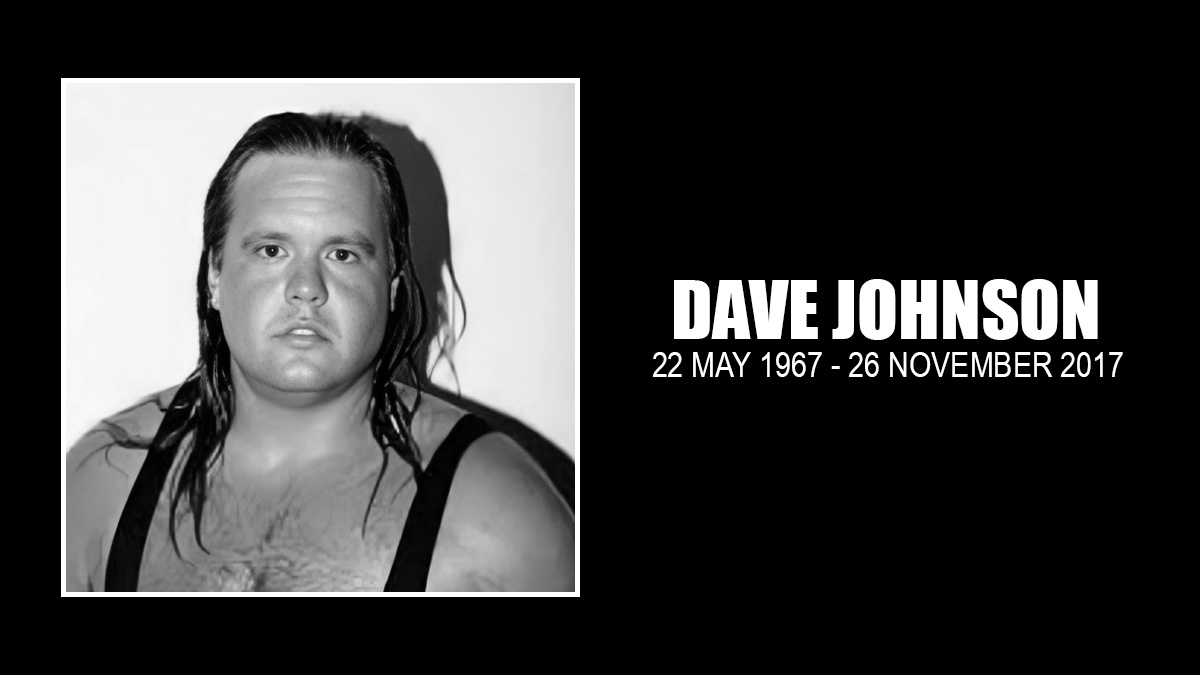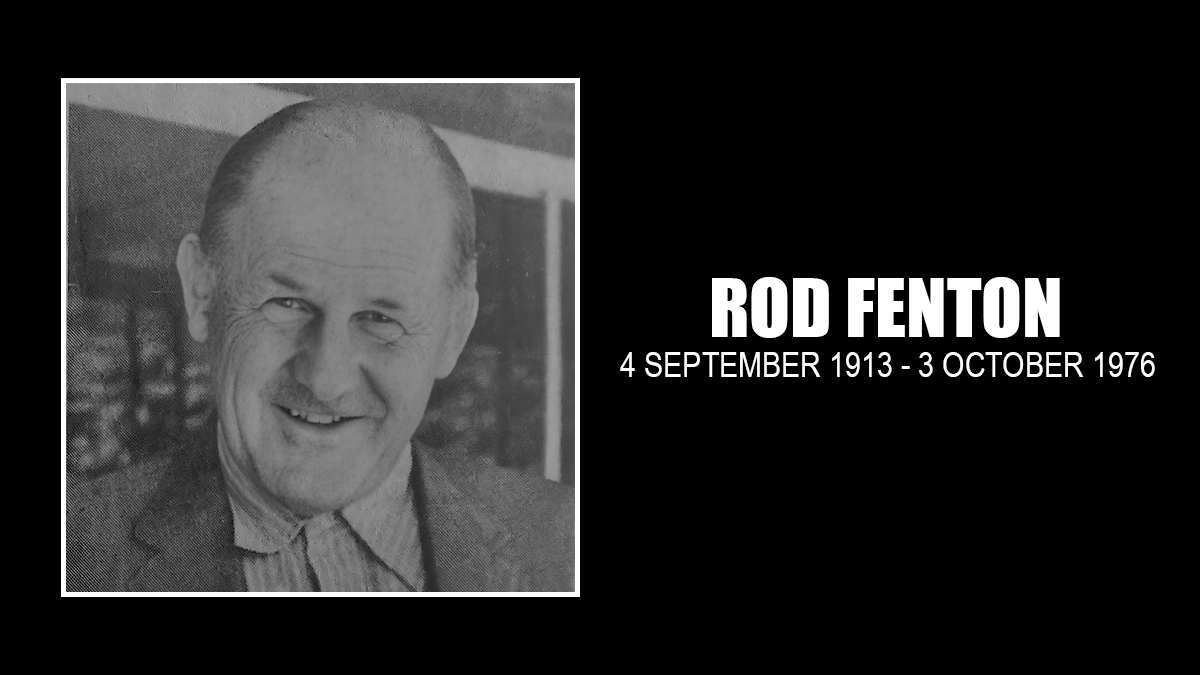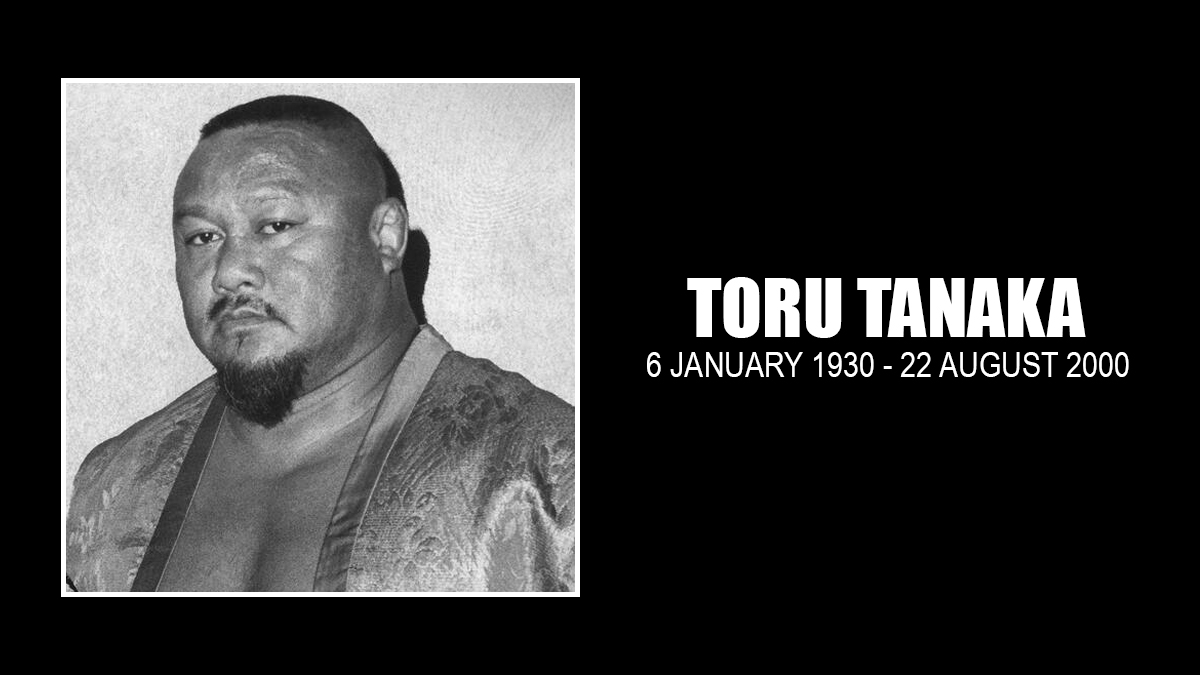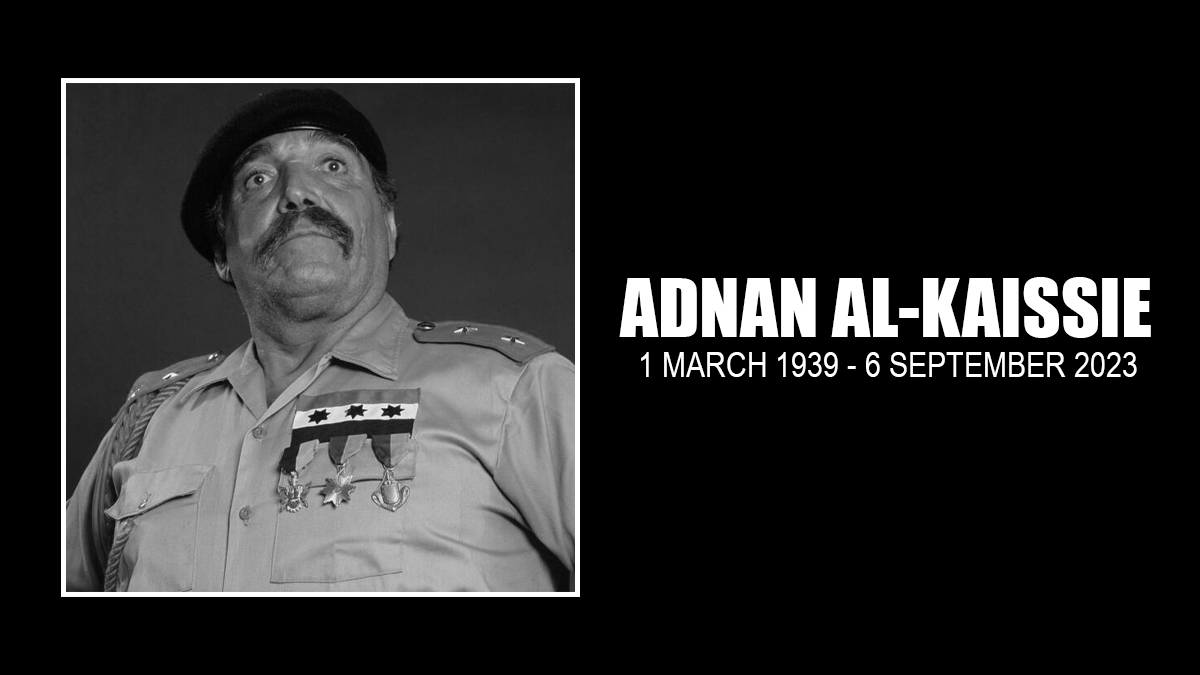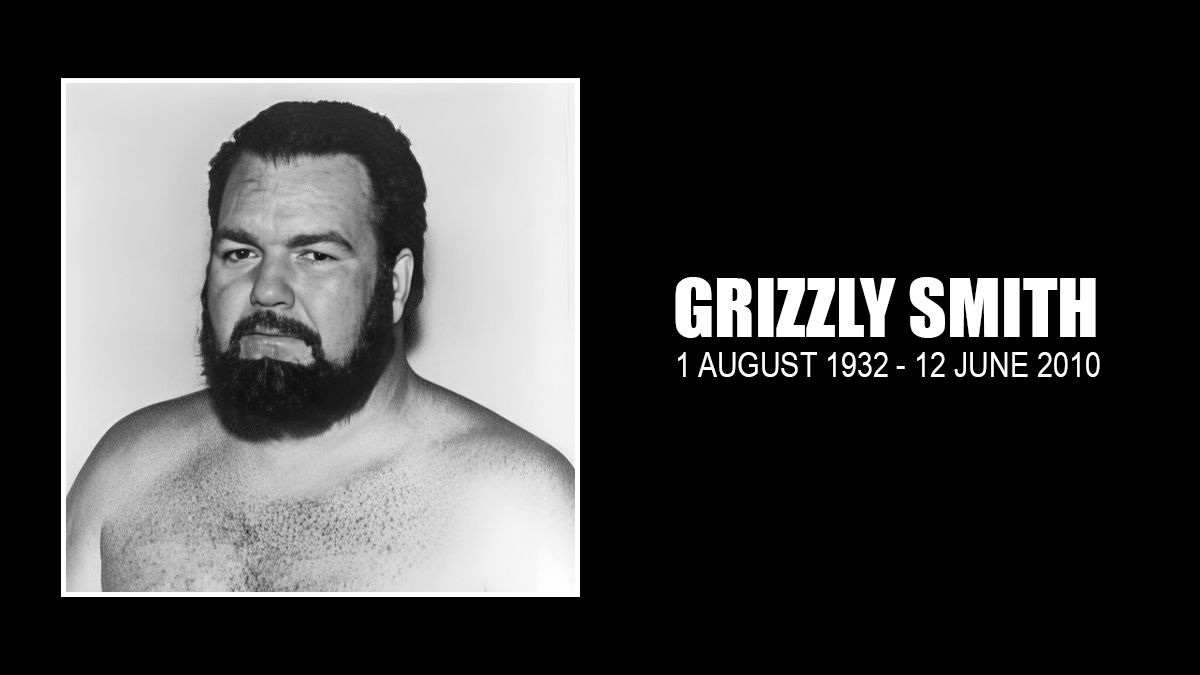To those who knew him, Dave Johnson, who died November 26 at age 50 after a heart attack, was much more than just a well-traveled tag team wrestler in the Blackhearts. He was a skilled performer, an excellent trainer, a valued mentor, a clever booker, and someone who always spoke his mind, the consequences be damned.
One of his closest friends was Tokyo Monster Kahagas, real name Paul Antone, who had traveled up and down the highways of Florida with Johnson for decades. They were supposed to team again next weekend, a comeback of sorts for Johnson who had stepped away from the professional wrestling business for about eight years, concentrating on his young son, Dave Jr., and his pool cleaning business, DJ’s Pool Service, in Vero Beach, Florida.
Antone first met Johnson in the dressing room at a Florida Championship Wrestling show. “We just became friends. We were just cool. We just had that common bond,” he said, explaining how the 6-foot-1, 250-pound Johnson could be intimidating. “He had that bitch-face. He was outspoken. He intimidated a lot of people. He didn’t really intimidate me, I was cool with him, I was just cool with everybody, but I seen it.”
The hardened Antone chuckled at the memories. “They’re still scared of him. The whole reason why is because he was real. He was that dude that gave a sh– about the business. He had his own mentality.”
David E. Johnson was born May 22, 1967. His initial training as a pro wrestler came from The Great Malenko, circa 1989. The lessons learned stuck with him, said Casey Thompson, who later wrestled with and trained wrestlers alongside Johnson. “Everything he ever talked about was, ‘Mr. Malenko always said this,’ ” said Thompson.
Respect was a big thing to Johnson, said Thompson. “If he walked into a building, he’d go up and shake everyone’s hands,” he said. Bigger stars would be approached first, but he would make an effort to say hello to everyone. He expected the same in return. “It’s all about paying your dues, getting respect, showing respect, respecting the business. With Malenko, he was brought up on that. He not only preached it and beat it into people all the time.”
Johnson’s big break would come under a mask.
Tom Nash and Dave Heath were the original Blackharts (Apocalypse and Destruction) in Calgary, Alberta, and had known each other from the Florida indy circuit. It was a gimmick that Nash came up with, along with Dave Meltzer, which he sold to Calgary booker Bruce Hart. In the storyline, the masked men were apparently bastard sons of Stu Hart, with an evil nephew, Hugh Hart (Kris Pope) as their manager. Heath, who would later gain fame as Gangrel in WWE, left in less than a week, and Jason Anderson became a Blackhart and the new pair held the Stampede International tag team titles in the final six months of the promotion, which closed in 1989.
The gimmick lived on those, memorable for the full-face mask, without openings, long robes. Often, the Blackhearts (renamed outside of Calgary) would have a primary mask on for ring introductions, removing it to reveal the black-masked nothingness. For popular culture reference, think Phantom of the Opera.
Over the years, Nash and Heath teamed as the Blackhearts, but another partner was Dave Johnson (Blackheart Devastation), who Nash also knew from the Florida scene. Complicating the issue was the fact that Nash had previously been romantically involved with Gertrude Vachon, better known as manager Luna Vachon; she ended up with Heath/Gangrel.
Johnson had a similar build to Heath, and Nash had a deal for the Blackhearts to go to Japan. Their first tour together (Nash had been previously) was February 19-28, 1993, with Terry Gordy, Steve “Dr. Death” Williams, Stan Hansen, Dan Spivey, Dory Funk Jr., Patriot (Del Wilkes) & Eagle (Jackie Fulton), Danny Kroffat & Doug Furnas, and Rob Van Dam (who was also on his first Japanese tour).
There was an incident with Stan Hansen that has lived on in infamy. Joe Cabibbo, a former NWA World champion as The Almighty Sheik, was one of Johnson’s projects later as a trainee. He heard plenty of stories from Johnson through the years, including the deal with Hansen and Spivey.
The Blackhearts “would beat people up and stuff like that,” he said. “Well, they ended up getting in the ring with Spivey and Hansen and Hansen hit Tom in the head with a chair and the blood was coming through the mask, and he hit Dave with the clothesline and knocked him flat out. Dave would talk about it, laughing about it, like, ‘Yeah, we deserved it.'”
The time in Japan would often come up in conversation, said Kahagas. If someone didn’t want to do something in the ring, he would respond with a story from his career, “Oh really, are you going to tell Kawada that when he beat your f—— ass?”
The Nash and Johnson pairing also made the rounds, working in Florida, Memphis, Joel Goodhart’s TWA in Philadelphia, and for Dennis Carluzzo and for Tony Rumble in the northeast, and briefly in World Championship Wrestling in 1993.
Johnson had already been to WCW as enhancement talent.
One of the non-wrestlers hanging around Malenko’s in Miami was Dave Penzer, who had aspirations of becoming a ring announcer. He was the right man at the right place at the right time when his friend and mentor Bob Roop was hired by WCW after the Global Wrestling Alliance shut down. WCW used a lot of enhancement talent at its tapings at Atlanta Center Stage facility, and at other shows. Ole Anderson taking over WCW led to Roop’s hiring and Penzer’s break.
“When Ole got the book in WCW, he hired Bob as a road agent. Bob hooked me up with Jody Hamilton, who booked the enhancement talent,” recalled Penzer. “I didn’t know, but back in the day in WCW, the enhancement talent had bookers. Now all of the bookers were wrestlers, so they got to wrestle and they got a booking fee for the guys they brought. So out of Louisville, you had Rip Rogers, he’d bring five guys; Italian Stallion and George South would bring a few guys; Mike Jackson would bring some guys from Alabama. And they didn’t have anyone in Florida, so they needed some new guys, so they hooked me up. I didn’t get paid from WCW, but they would rent me a car every week. It would be my responsibility to find four or five good enhancement guys that we’d drive up, usually criss-crossing the state of Florida and go up to either Marietta or Gainesville. Then we started traveling all over. We went up to Chicago one time, it got pretty crazy. Then I got the job working for WCW, so I stopped doing that. But I did that for a good three years.”
A regular on Penzer’s trips — the boys were charged $25 for the ride — was Dave Johnson, who was based in Port St. Lucie at the time. “Dave was one of Jody Hamilton’s favourite workers because he was solid, he was thick but not too muscular. Jody and I used to talk about if the territory days were still alive that Dave would make a good living for as many years as he wanted, working in the old territories, either under a hood or whatever. Just that he had a good build, a good-looking guy, everything he did was solid.”
There was a pride to being a regular with WCW said Thompson, who frequently rode up with Penzer too. They made a lot of friends and future contacts, and there was no shame in putting stars over on a regular basis on WCW Saturday Night or other shows. “It is what it is. I’m friends with a lot of the top guys,” said Thompson. “Arn Anderson introduced me to Stephanie McMahon, and said, ‘It’s one of the boys from Atlanta.'”
Dirty Dennis Allen (Dennis Bunt) was another that met Johnson in Atlanta. A trainee of Larry Sharpe’s Monster Factory in New Jersey, he saw a fellow warrior in Johnson. “He loved the business,” said Bunt. “Out of the ring he was a great big goof. In the ring as tough and stiff as they come. Driving with Dave was always an adventure. He loved a good rib and a stiff chop or kick in the back.”
In the mid-1990s, Bunt ran into Johnson at a GNC store and they would subsequently see each other often on the vibrant Florida indy scene, where Johnson was The Blackheart or Blackheart Devastation. “We both worked for several promotions and trained in Fort Piece with Cliff Sheats. By the end of of the ’90s we worked in three promotions together. Saw him every weekend.”
Sheats ran a wrestling school, paired with the Florida Wrestling Alliance. Cabibbo had attended another school, but found it “rinky-dink” and learned about Sheats’ school when he attended a live event that included Johnson and Thompson on the card. “It was run by Casey Thompson and Cliff Sheats, but Cliff really just owned it, and Dave and Casey taught me how to work and taught me everything I needed to know.”
There are three key figures that Johnson helped mold into accomplished professional wrestlers:
— Cabibbo as the Almighty Sheik, who was green as grass learning the ropes under Johnson and Thompson;
— former WWE star and current New Japan grappler Montel Vontavious Porter (Hassan Hamin Assad), who had begun his training under Soulman Alex G and Norman Smiley but found further education with Johnson;
— and Kahagas, who was more of a colleague
“Me, Kahagas and MVP were like his guys,” said Cabibbo. “We were Dave’s projects. I was the one that was literally trained by Dave. … Dave gave MVP a lot of his wisdom coming up, and then Kahagas was more of a peer later on and really good friends with Dave, so he caught a lot of Dave’s knowledge that way. It’s all different stages. I was wet behind the ears, MVP was wet behind the ears but he had talent, but he was already trained by Alex G and Norman Smiley. Just three different guys in three different parts of their career that Dave effected their careers in a positive way.”
Cabibbo offered a specific example of Johnson’s belief in his projects. “I remember one time a guy was getting a push on a show and Dave was screaming at the promoter. It was when I was just starting to come up, it was right when I was working the circuit, and it was before I went to Puerto Rico and really learned how to work nightly. I can’t remember the reasoning, but I just remember Dave standing up and screaming at the promoter for using this guy the wrong way, and then putting me over and putting my partner over and MVP over, and saying, ‘These guys are men. These guys are wrestlers.’ ”
On his official Facebook page, MVP posted a note about Johnson:
The “Blackhart” Dave Johnson. My friend and mentor. He taught me how to BE a pro wrestler. Always kept it real. A great father. A true friend. As a professional wrestler I am used to losing friends. This one caught me completely off guard. This one hurts more than usual. I will miss my friend. RIPower Dave. I love you bro!
The Almighty Sheik is the biggest name to have done most of his training with Thompson and Johnson. Cabibbo learned different things from Johnson and Thompson.
“It wasn’t Dave’s spot in the school to teach you the basics and teach you wrestling. Dave didn’t go, ‘Okay, this is how you do this move.’ Dave would say, ‘Hey, when you’re in Puerto Rico, make sure you call Japan. And when they ask you how you’re doing, you tell them you’re in Puerto Rico and don’t ask for anything, because nine times out of 10, they’ll ask you to give them a call when you get home.’ Sort of how to place value on yourself, how not to devalue yourself, certain things to look for and watch for, how to protect yourself monetarily so nobody rips you off, that sort of thing,” said Cabibbo, calling it all “just invaluable stuff, that I feel really isn’t taught today. Dave had a way about him, he really put things in a really blunt way, but it was extremely eyeopening. He was a really good teacher. He absorbed things and the way he explained the things he absorbed was just dead-on. It was just a type of training that I really took to. I like somebody being blunt and truthful to me, and letting me know if something sucks, or letting me know if I did something wrong, and telling me why and how to fix it.”
Thompson said that he and Johnson believed in the same thing when training wrestlers — test them and if they come back, train them.
“Me and Dave, we had an old-school outlook on it. We always did. If we didn’t believe you deserved to be in wrestling, we’d just beat you up until you left and quit,” admitted Thompson. “We just made it rough, like it was on us. If you couldn’t take it and show the respect for it — it’s all about respect. We had an old saying, ‘This isn’t Little League, everyone doesn’t get to play.’ And that’s a problem with a lot of the promotions now. ‘Oh, you want to be a wrestler? You’ve got money? Here.’ We didn’t care about that. We wanted to stay true to the sport and that’s what we did. We both wrestled very stiff in the ring. We didn’t hurt people but everything was believable, we laid everything in.”
Cabibbo confirmed the training style. “They would beat me up. I’m not talking about it in a working fashion, I mean they would beat me up. I’d come back and they’d beat me up again. And I’d come back and they’d beat me up again,” he said. “They didn’t let us get in the ring. We chain-wrestled outside of the ring. We ran around the building. We did squats and push-ups. We got trained the old-school way.”
As much as Johnson is recalled for his physical nature, his verbal barbs were equally hard-hitting.
“He would always have something to say about everyone, you know? It always kept everyone on their toes and kept everyone in check,” said Thompson of Johnson’s directness.
“That’s what he was famous for,” said Kahagas. “He will ruin somebody. Put it this way, I learned to ruin somebody with a smile from him, you know what I mean? He always had a comeback for something, all the time you say something, he always had a comment, a comeback. And the thing is, it was never derogatory, unless it was a negative conversation of some sort, other than that, it was never anything to hurt anybody — it was just real, and funny. He was just a funny dude when he did that. As far as being blunt with people, oh yeah, I’ve seen him be blunt with people.”
Like Kahagas, Cabibbo had a story to share. “Dave would do funny stuff, like when he was teaching me, I would absorb everything like a sponge. I was always a student of the game. I would watch through the curtain all the matches, and Dave, he had this way about him — he was so sarcastic and so stiff. He would just walk by and there’d be a particular wrestler in the ring or something that just stunk, and Dave would just close the curtain right in front of my face and goes, ‘Don’t watch that one.’ He’d walk away and laugh, ‘Ha, ha, ha, ha.'”
The late Hack Myers, the veteran of ECW who died in December 2015, was one of Johnson’s buddies in and out of the ring. For a time, Myers, Johnson and Thompson were a Fabulous Freebirds-like trio, switching between tagging and singles bouts. “We were in a group called — actually the fans named us — FYU, F— You Up was the name of it, because we pretty well just went out there and killed everyone,” said Thompson. “That’s what they would chant the whole time.”
Kahagas spent a lot of time with both Myers and Johnson. “Between the three of us, we talked to each other every day, every friggin’ day until recent,” he said. “We were tight. We stayed at each other’s houses, knew each other’s families. It was a real cool thing with them two. What sucks is Hack’s now gone and me and Dave actually went up to Hack’s funeral together. Now, this happens.”
The personal connections run through the wrestling business. Thompson said that Johnson came to his wedding and is the godfather to his son. Another wrestler, “Wet Willie” Liddell was introduced to his wife by Johnson.
Johnson himself had a 10-year-old son, Dave Jr., with a woman named Jessica, though they had recently divorced. They met when she began training to be a pro wrestler, though her in-ring career did not last long.
Plenty of Florida promotions benefited from having a veteran like Dave Johnson on their cards, whether he was under a mask or not.
“Dave worked for me regularly in 1998 through 2002 when I ran Future of Wrestling. I often put Dave in the ring with guys like Kevin Sullivan, Jerry Lawler, Steve Keirn, Tatanka, and so on because I knew Dave not only could handle those spots, but he deserved those spots, which is why I put him over in all those spots,” recalled promoter Michael Rapuano, who also wrestled as Bobby Rogers. “I cannot say I was close with Dave outside of the shows, but he was an old school pro, in a good way. If you didn’t fit in, Dave would be hard on you, but not to hurt you, to help you fit in and belong, some people didn’t understand that about Dave.”
With Coastal Championship Wrestling, he was both a wrestler and a booker. Kahagas recalled an early show where “there were probably 30 people, 40 people in the crowd” and how it grew to “400-500 people every show.”
Dan Ackerman is one of the promoters of the still-running CCW. He praised Johnson’s contributions. “He was with us from Day One, from our first show, which was in March of 2004. He worked for several years and then hurt his knee, and started doing the booking for us,” Ackerman said. “Once he stopped wrestling, which I guess was about 2007 or so, 2008, he did the booking for us, and we had some of our best years with him doing that, and we consistently drew between 500 and 800 people to a show for everything he booked. We did real well with him.. He took some time off, maybe three years ago, and just recently started getting back into it. He wanted to go out and put over the younger guys and help them come along, training new guys and just keep things going.”
Pablo Marquez, Ackerman’s partner in CCW, also appreciated what Johnson added to the company. “Dave brought his knowledge and his years and years of experience wrestling all over the world. He brought that, and mentored the younger guys in the CCW locker room. He was only affiliated with CCW, by the way. He wasn’t working anywhere else. He’s what we call loyal, he was just CCW through and through. His mentality was just different. They don’t make guys like that no more.”
Johnson was scheduled to be in the ring on Saturday, December 9th for a CCW show at Coral Springs Charter School, in Coral Springs, Florida, that would feature both MVP’s return to the promotion and Kahagas, so two of Johnson’s “projects.”
“He’s the only guy I ever really tagged with. We were going to tag next weekend, and now it’s not going to happen,” Kahagas said of Johnson’s death on November 27 from a massive heart attack.
Instead, it will be a tribute show to Dave Johnson, the Blackheart, with Johnson’s son and ex-wife in attendance. Marquez wishes he could have seen his long-time friend back in the ring: “He wanted to come back and physically do it, and he was in great shape for someone his age.”
Johnson is survived by his son, David J. Johnson, mother, Carol Johnson, sister, Robin Bevilacqua and brother-in-law, Larry Bevilacqua and nieces, Lauryn Johnson and Alayna Losito. He is preceded in death by his father, Harold Johnson and brother, Lenny Losito.
There will be a visitation for David E. Johnson on Saturday, December 2nd, from 2-4 pm, followed by the funeral, at Cox-Gifford-Seawinds Funeral Home, 1950 20th Street, Vero Beach, Florida.
